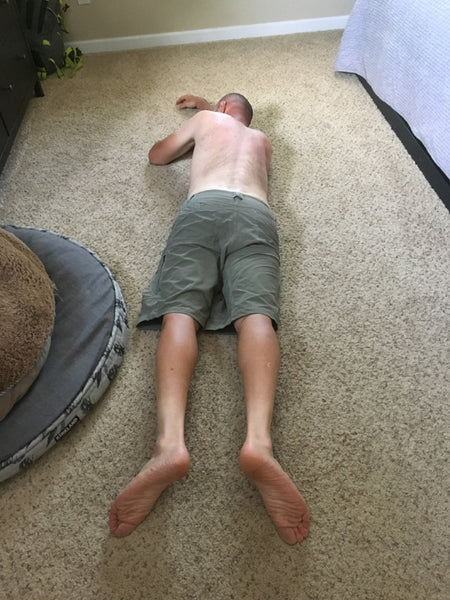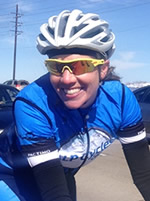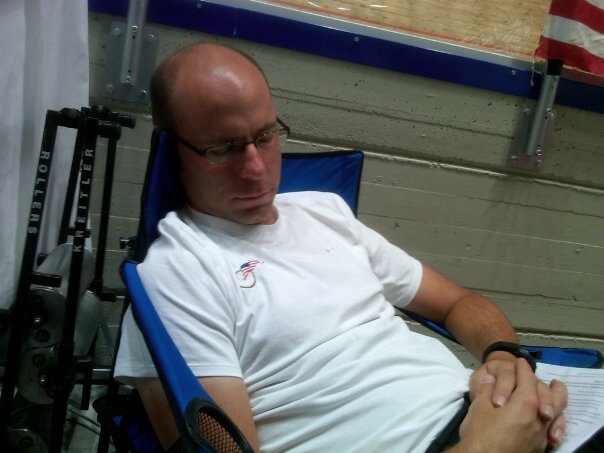By putting your sleep quality and hygiene first, you can improve your hormonal and cognitive performances.
By Jennifer Sharp, ALP Cycles Coaching
It's choose your own adventure time...it's been a long week. You've had multiple deadlines at work and still managed to fit in your daily training prescribed by your coach. You've had to cut your nightly sleep totals by 30-60 minutes each night and by Friday, you're more than ready for the weekend. Do you: A) let loose and unwind from the week. Go out with friends, have a few drinks, stay up late and plan on catching up on your sleep during the weekend - that's what coffee was invented for, right? Or B) Get a nutritious, well balanced meal and head to bed early.
Option A lets you unwind from a busy week and celebrate the successes you've had. You've done your training and use Friday night as a reward. Connecting with your friends is important and what's one more night of staying up late? You still have green on all of your workouts in TrainingPeaks for the week and your coach won't know if you have a little fun.
Option B could be considered the boring route. Yet your body is craving some nourishment and you provide it in the form of leafy green vegetables, lean protein, and healthy fats, water, eating roughly 3 hours before you hit the hay. You're in bed reading your favorite book and turn off the lights by 9pm.
If you picked Option A - keep reading. You had a great time with your friends and stayed up will past midnight. The next morning you oversleep your group ride and decide to hit the snooze button several times. Once you get up, you've got a raging headache, so you pop a couple of anti-inflammatories and grab some coffee. You check your email and discover that one of your clients wants you to rework the marketing plan you laid out by 2pm. You glance at the clock and it's noon. You decide to blow off training (you were good all week - what's one day off?) and get to work. Two hours later you still can't focus, so you turn in sub par work and decide to go for a ride but don't feel well and chalk it up to hanging out late with your friends the night before. By dinner time, you start to feel a tickle in your throat. By Sunday you have a full blown cold and have missed two days of quality training.
If you picked Option B (or regret picking option A) - keep reading. You wake up the following morning refreshed and have a little extra time to do your activation movements before your group ride. That morning you put a couple of really strong pulls at the front of the group, making the front selection over the most challenging hill. You return home and see an email from a client requesting that you rework the marketing plan you laid out. You agree with their comments and quickly get to work, finishing their edits and suggestions within 30 minutes. You have the rest of the day to recover from your morning ride and take a 30 minute nap. Feeling refreshed, you connect with your friends and still make it to bed by 9pm so you can get in some quality training the following day.
We're all faced with daily choices that can impact our mental clarity and physical performances. Getting quality sleep is getting more and more focus in elite athletics because of its impact it can have on performance.

Ben Sharp has the amazing ability to fall asleep anywhere - taken just after a morning time trial.
Interested in improving your sleep quality? Here are some tips that you can use to increase your sleep hygiene.
1. Maintain a regular bed and wake time. If you know you need to get up early in order to get your workout in before you head out the door to work or school, then get to bed early enough so you get the recommended 8 hours of sleep per night. Having a regular bed time will help regulate your body's clock and could help you fall sleep and stay asleep each night.
2. Create a quiet, cool and dark bedroom environment. Sleep.org recommends sleep environments between 60-67 degrees because it can aid in the initiation of decreasing your body temperature, which happens right before you snooze. Experiment with different temperatures and see which one works best for you. Use black out curtains to create a cave like environment and make sure it's quiet. If your partner snores, using ear plugs or white noise machines can help.
3. Avoid caffeine and other stimulants prior to sleep. For some, this may mean cutting off the coffee before 3pm. For others, this may mean no caffeine at all, especially if you have a sensitivity.
4. Avoid blue-light emitting devices in the hours prior to sleep. That means no late night Instagram binge checking, or watching movies on a device. If you need entertaining as you wind down at night, a good old fashioned book will do the trick.
5. Use relaxation strategies before bed. This can include an evening of meditation or progressive muscle relaxation, deep, conscious breathing and visualization exercises.
Have some tips and sleep strategies you'd like to share? Please leave them in the comments below. Happy training and sleeping!
...........................................................................................
ABOUT JENNIFER SHARP
 Jennifer Sharp, a USA Cycling Level 1 Coach, started racing in 2004 as a means to fulfill her competitive itch. Previously a national level boxer, she grew tired of getting hit in the head and decided to pound the pedals instead. She bought a pink Kona road bike completing several recreational rides and found herself passing as many people as possible. Since then she has multiple podiums at elite track national championships, master track national championship titles and world cup finishes under her belt.
Jennifer Sharp, a USA Cycling Level 1 Coach, started racing in 2004 as a means to fulfill her competitive itch. Previously a national level boxer, she grew tired of getting hit in the head and decided to pound the pedals instead. She bought a pink Kona road bike completing several recreational rides and found herself passing as many people as possible. Since then she has multiple podiums at elite track national championships, master track national championship titles and world cup finishes under her belt.
Jennifer, a Seattle native, joins the ALP Cycles Coaching with a background in road and track. Her experience as a USA ParaCycling team tandem pilot, part-time work at USA Cycling in the Coaching Education Department and love for all things cycling is a welcomed addition to the ALP Cycles Coaching team.











